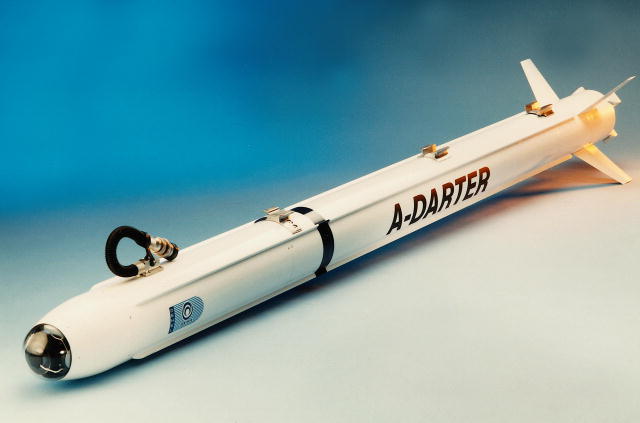The successful joint missile development programme between South Africa and Brazil may open the door for future cooperation in the defence industry.
Talib Sadik, the Group Chief Executive Officer of Denel, says today’s visit by the Brazilian Minister of Science and Technology, Aloízio Mercadante, underlines the importance of the A-Darter air-to-air missile programme for both countries.
“This is the next step in the relationship between the defence industries of South Africa and Brazil that will grow in significance and value over the next few years,” says Sadik.
President Dilma Rousseff is in South Africa for the IBSA Summit, hosted by President Jacob Zuma and also attended by the Prime Minister of India, Manmohan Singh. Mr Mercadante forms part of the strong Brazilian delegation at the Summit that starts on Tuesday (18 October).
Sadik says the A-Darter was initiated jointly between, Denel subsidiary, Denel Dynamics and the Brazilian Air Force in 2006. This was the first cooperative defence programme between the two countries in terms of the trilateral IBSA Agreement.
The Minister of Defence and Military Veterans, Lindiwe Sisulu, has described the programme as “a model for cooperation and joint development by South Africa and other developing nations.”
The A-Darter is a R1-billion development with the final products due to be delivered to the South African and Brazilian air forces in early 2013.
The short-range air-to-air missiles will be fitted to the SA Air Force’s JAS 39 Saab Gripen and BAE Hawk aircraft. The A-Darter has already been launched successfully from the Saab Gripen fighter jets.
According to Jan Wessels, Denel Dynamics CEO, “The A-Darter is designed to be a highly agile missile, able to manoeuvre at very high G-forces. Its imaging Infra-Red seeker is designed to have very high angles of view. With a mass of less than 100kg, the missile is powered by a boost-sustain rocket motor with thrust vector flight control”.
Wessels says there are only a handful of countries in the world with the technical abilities and capacity to develop these fifth-generation missiles.
The A-Darter programme provides 200 direct jobs (highly skilled engineers and technical support personnel) within Denel Dynamics, and up to 1 200 indirect jobs in the wider SA industry.
The ministerial visit will be a stimulus for future cooperation between Denel and the Brazilian defence sector. Brazil is hosting both the 2014 FIFA World Cup and the 2016 Olympic Games and is in the planning process to upgrade its air defence capabilities.
“The Denel Group and in particular, Denel Dynamics, with its proven capabilities in the design, development and manufacturing of missiles – and its strong relationship with Brazilian companies – will be in a strong position to benefit from possible opportunities arising from this process,” says Sadik.
“The successful A-Darter development demonstrates the economic impact of Denel’s activities beyond the financial performance reflected in our annual results,” says Sadik.
“The defence industry is a vital contributor to maintenance of South Africa’s advanced manufacturing capacity that is inextricably linked to associated knowledge creation and technology development.
“Denel, as a state-owned company, is at the forefront of this process through its on-going investment in research and development, its collaboration with the Department of Defence and foreign client base as well as the broader research community through its strategic position as a developer and manufacturer of niche defence products,” says Sadik.
The missile programme with Brazil is part of a growing trend in Denel to cooperate with foreign partners in the development of defence systems. Denel Land System is cooperating with partners in South East Asia on the development of turrets fitted to armoured vehicles. Denel Dynamics is responsible for a joint programme with a country in the Middle East on unmanned aerial vehicles and precision-guided munitions systems. These partnership opportunities drive the creation of jobs in the industry.










